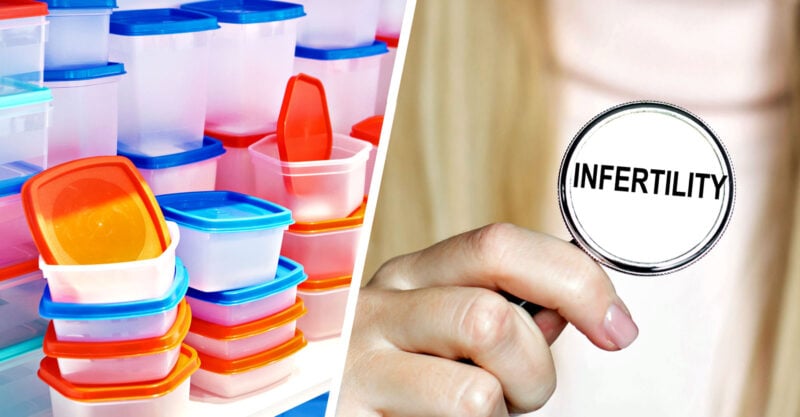

Tom's Blog on Life and Livingness
(Tom: I received this from a friend. It synchronises with the data I have heard about Gulf War Syndrome resulting from bottles of water/soft drink left in the hot sun.)
Important A friend of ours became very sick after drinking water left in a car overnight but she was ill for a couple of months.
Bottled water in your car is very dangerous! On the Ellen show, Sheryl Crow said that this is what caused her breast cancer.
It has been identified as the most common cause of the high levels of dioxin in breast cancer tissue.
Sheryl Crow’s oncologist told her: women should not drink bottled water that has been left in a car. The heat reacts with the chemicals in the plastic of the bottle which releases dioxin into the water. Dioxin is a toxin increasingly found in breast cancer tissue.
So please be careful and do not drink bottled water that has been left in a car.
Pass this on to all the women in your life. This information is the kind we need to know that just might save us!
Use a stainless steel container or a glass bottle instead of plastic!
No plastic containers in microwaves.
No plastic water bottles in freezers.
No plastic wrap in microwaves.
Dioxin chemical causes cancer, especially breast cancer.
Dioxins are highly poisonous to cells in our bodies.
Don’t freeze plastic bottles with water in them as this releases dioxins from the plastic.
We should not be heating food in the microwave using plastic containers. This especially applies to foods that contain fat.
He said that the combination of fat, high heat and plastic releases dioxin into the food.
Instead, he recommends using glass, such as Pyrex or ceramic containers for heating food. You get the same result, but without the dioxin.
So, such things as TV dinners, instant soups, etc., should be removed from their containers and heated in something else.
Paper isn’t bad but you don’t know what is in the paper. It’s safer to use tempered glass, such as Pyrex, etc.
He reminded us that a while ago some of the fast food restaurants moved away from the styrene foam containers to paper. The dioxin problem is one of the reasons.
Also, he pointed out that plastic wrap, such as Cling film, is just as dangerous when placed over foods to be cooked in the microwave. As the food is nuked, the high heat causes poisonous toxins to actually melt out of the plastic wrap and drip into the food.
Cover food with a paper towel instead.
Written By: Kelly Brogan, M.D.
You know Tylenol can relieve a headache, but are you aware it can cause other side effects, such as increased risk of death or heart toxicity?
Tylenol: Helping or Hurting?
Have you ever popped a Tylenol to push through that annoying headache and get on with your day? Most of us have. Each week, millions of Americans take one of the 600 medicines that contain acetaminophen, Tylenol’s active ingredient, for various aches and pains. Acetaminophen is the most common drug ingredient in the US, but this ‘harmless drug’ is linked to over 110,000 injuries and deaths per year.
How can Tylenol, which is doled out like candy, be bad for you? Amazingly, no one really knows how acetaminophen works [1], but people do know that this drug gets to your brain. Tylenol in your brain is concerning because it depletes glutathione [2], an antioxidant that is especially necessary for brain health. Our bodies depend on antioxidants to balance oxidative damage and inflammation. If you’re popping a Tylenol with your morning antioxidant-rich KB Smoothie, Tylenol may rob you of the smoothie’s benefits!
Beyond Liver Damage
Most people have heard that Tylenol can damage the liver (has anyone ever drunkenly warned you to take a Motrin, not a Tylenol, to prevent a hangover?). But since everything in our bodies is connected, it’s not surprising that Tylenol can do damage beyond your liver. A recent study showed that people who took Tylenol had increased risks of death, heart toxicity, gastrointestinal bleeding, and kidney damage [3]. Importantly, people who took more Tylenol suffered more damage.
It’s also scary how Tylenol affects mood. After swallowing 1000 mg of Tylenol, people exhibited less empathy and blunted positive emotions. For reference, 1000 mg is two extra-strength Tylenol tablets, and the ‘safe’ range is 3000 mg per day. This means that popping two Tylenols can affect you physically and emotionally!
If you’re pregnant or looking to become pregnant, please be especially careful about taking Tylenol. Research has shown that children exposed to acetaminophen in the womb had behavioral, communication, and motor skill problems. Another study linked prenatal acetaminophen exposure with increased ADHD-like behaviors and medication use.
What about other painkillers?
Hopefully you’re convinced to think twice before taking a Tylenol, but what about other pain-relievers like Motrin, Aleve, or Advil? These non-steroidal anti-inflammatory drugs (NSAIDs) must be safe, since thirty million people take them every day! Not so fast…
Women who recognize the importance of hormonal balance should be wary. NSAIDs can mess with ovulation, especially progesterone levels, after only 10 days of use [4]. Additionally, NSAIDs injure the small intestine; in one study, 71% of NSAID users showed small intestinal damage, compared to 10% of non-users [5]. Damaged intestines can lead to intestinal permeability, or “leaky gut.” Leaky gut has been linked to depression, ADHD, and allergies. NSAIDs can cause leaky gut [6] and harm your microbiome, the trillions of beneficial bacteria that live in and on us. Disrupting our bacteria can do more damage than we realize!
How can I relieve my headache?!
Now that you know the surprising dangers of Tylenol and other NSAIDs, what should you take for headaches and other aches and pains? Turmeric, the yellow root found in curry powder, contains a powerful anti-inflammatory and pain reliever called curcumin. This has been used in Ayurvedic and Chinese medicine as a treatment for pain, digestive disorders, and wound healing for centuries. Many studies show the beneficial effects of curcumin; curcumin works as well as ibuprofen to alleviate pain from knee osteoarthritis [7] and PMS [8]. Next time you have a headache, try 1-2 grams of curcumin – or a turmeric latte!
© March 5th 2017 GreenMedInfo LLC. This work is reproduced and distributed with the permission of GreenMedInfo LLC. Want to learn more from GreenMedInfo? Sign up for the newsletter here: http://www.greenmedinfo.com/greenmed/newsletter
https://articles.mercola.com/sites/articles/archive/2025/01/11/interval-walking-training.aspx

In a Frontiers in Public Health review article, researchers report on the wide body of science connecting adverse effects to the female reproductive system, such as infertility, with exposure to endocrine-disrupting chemicals, or EDCs.
The authors call these effects a significant concern for public health, as there has been growing evidence of EDCs with risk factors for decreased fertility.
Infertility “affects a substantial proportion of the world’s population with approximately one in six people affected,” the researchers note.
They continue:
“Over the last 70 years, global fertility has been constantly in decline due to behavioral and societal changes … emerging evidence has shown that infertility incidence is linked to exposure to environmental factors such as tobacco, alcohol, and a wide range of endocrine-disrupting chemicals (EDCs) including pesticides (chlorpyrifos, glyphosate, dichlorodiphenyltrichloroethane [DDT] and methoxychlor), phthalates, polychlorinated biphenyls (PCB), dioxins, and bisphenols.”
In this review, over 100 studies are summarized to showcase the link between EDC exposure and reproductive effects in women, including infertility and related diseases such as endometriosis, premature ovarian insufficiency, or POI, and endocrine axis dysregulation.
https://childrenshealthdefense.org/defender/endocrine-disrupting-chemicals-infertility-women/

